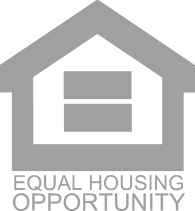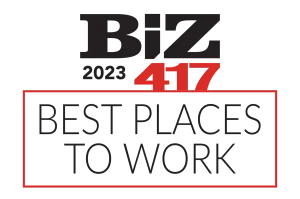
Real Estate Financing: A Simple Guide for Investors
Real estate financing refers to the process of borrowing money to purchase property. Imagine you want a new toy but don’t have enough allowance, so you borrow from mom or dad and promise to pay back a little extra later. That extra money is called interest investment property loan exchange.com. Real estate financing works similarly: you take out a loan to purchase a house or building, then repay the loan plus interest. These loans are typically for properties you don’t live in yourself (like rentals or fixers)investmentpropertyloanexchange.com. In other words, you borrow to invest. The goal? To make money from the property (through rent or resale)investmentpropertyloanexchange.com.
Types of Real Estate Loans
There are several loan types for investors:
-
Conventional Loans: Standard mortgages from banks. They’re the “go-to” loan for many investors and work well for single-family rentals or small multifamily investmentpropertyloanexchange.com. Expect to need a larger down payment and stronger credit.
-
DSCR Loans: DSCR stands for Debt Service Coverage Ratio. These loans qualify you based on the property’s income, rather than your salary. In other words, the lender checks that the rent can cover the loan payments. DSCR loans are outstanding for investors who want to use rental income (including short-term or Airbnb income) to secure financing.
-
No-Doc Loans: Short for “no-documentation”. These loans don’t require the usual income proof (no pay stubs or W-2s). They were once rare, but today you may only find them for investors, typically through private lenders. In practice, no-doc loans often look like hard money loans now.
-
Hard Money Loans: Short-term loans from private lenders. Hard money is based on the property’s value and offers quick funding (often used for flips or fast deals)investmentpropertyloanexchange.com. The downside is that it comes with much higher interest rates than a bank loan.
-
Commercial Loans: For significant properties (large apartment buildings, office towers, etc.), commercial loans apply. These have more complex terms and are meant for serious investmentpropertyloanexchange.com. Rates can vary widely. For example, a fully leased building might receive an investor rate similar to a home loan, but a risky project could result in rates of 10% or higher.
Each type has its rules. For instance, an FHA loan can even help if you’ll live in one unit of a multi-unit property and rent the others. Always pick the loan that fits your plan.
Compare Loans with Investment Property Loan Exchange
Instead of applying to lenders one by one, use a comparison platform like Investment Property Loan Exchange. You fill out a straightforward form and get matched with multiple investmentpropertyloanexchange.com. That means you can compare many loan offers at once – rates, fees, terms – side by side, all for free. This can save you hours of paperwork. You’ll see deals for conventional, DSCR, hard money, and other loan types in one place. In short:
-
One Application, Many Offers: Enter your info once and see loan offers from multiple.
-
Compare & Save: Quickly compare interest rates to find the best deal. It’s free to use.
-
Investor-Friendly: The service specializes in rentals, multifamily, and commercial deals, so lenders understand your needs.
By comparing through Investment Property Loan Exchange, you’re more likely to spot the lowest rates and avoid overpaying.
Loans for Short-Term, Multifamily & Commercial Properties
Loan rates depend on property type. For short-term rentals (like vacation homes or Airbnb units), lenders see more risk because rental income can be uneven. These loans often cost about 0.5%–1% more in interest than a similar long-term rental or investment property loan (investmentpropertyloanexchange.com). Multifamily loans (duplexes, triplexes, 4-plexes) also usually carry slightly higher rates than single-family rental loans. That’s because managing more units can be trickier.
For large commercial deals (5+ units or office/retail buildings), you generally use a commercial mortgageinvestmentpropertyloanexchange.com. Rates here vary a lot. A well-leased apartment complex might have rates in the normal investment range, but a risky or short-term project could push rates above 10%investmentpropertyloanexchange.com. In all cases, DSCR loans can help: they let you qualify based on projected rental income instead of personal incomegriffinfunding.com. That’s handy for any rental business, whether it’s a long-term apartment or a vacation home.
2025 Financing Tips
-
Improve Your Credit Score: Before applying, boost your credit as much as possible. Lenders favor scores of 700+investmentpropertyloanexchange.com. Even a small bump in credit can lower your rate.
-
Save a Bigger Down Payment: Putting more cash down reduces risk for the lender. This often buys you a better interest rateinvestmentpropertyloanexchange.com.
-
Shop Around: Don’t just take the first offer. Compare rates and terms from multiple lenders to get the best investment property loan. Using a platform makes this easy.
-
Lock in a Good Rate: If you find a low rate, secure it quickly. This protects you if market rates rise before your loan closesinvestmentpropertyloanexchange.com.
-
Plan for Higher Rates: In 2025, typical investment property loan rates are often in the mid-6% to 8% rangeinvestmentpropertyloanexchange.com. Ensure your rent income and budget can cover the increased costs.
Following these tips will help you secure financing more cheaply and avoid surprises.
By understanding your loan options and using Investment Property Loan Exchange, you’ll be in a great position to finance your next rental, multifamily, or commercial property. Ready to get started? Visit the Investment Property Loan Exchange Financing Page to compare loan offers and connect with our experts at investmentpropertyloanexchange.com.

 Previous Post
Previous Post Next Post
Next Post






